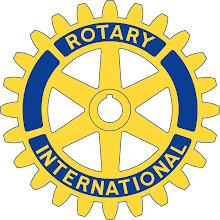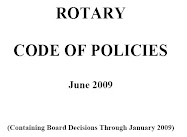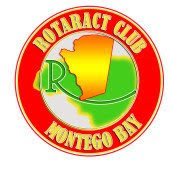Video Source: Doctors Without Borders
On Saturday February 20, 2010 a delegation of Rotarians (PRID Barry Rassin and PDG Richard McCombe) along with the Haitian Ambassador to The Bahamas Louis Harold Joseph (Honorary Rotarian) and Pilots Paul Pyfrom and Paul Aranha (mentioned because of the many, many relief flights they have volunteered to fly, especially Paul Aranha) flew from Nassau, Bahamas to Port au Prince, Haiti. Our purpose was to visit the epicenter and to meet with the Rotarian Leaders who have continued working tirelessly to bring relief to all they can.
We were met at the PAP International Airport by Rotarians from Haiti: PDG Amos Durosier and his wife Arlette, DGN Dr. Guy Theodore, AG Caleb Lucien, AG Dr. Claude Surena, PP George Nicolas, and Ted Lazarre.
First we met as a group for a briefing on the current needs in Haiti resulting from the earthquake on January 12 and the 54 subsequent tremors. We then joined the Prime Minister for Haiti, the Honorable Jean-Max Bellerive, and had a very cordial and accommodating meeting. He expressed his appreciation for what Rotary has done over many years in Haiti and specifically for what they continue to do now. He stated that all Haitians know Rotary and what they do.
The following is a synopsis of the two meetings:
1. It is believed that 250,000 have lost their lives to the earthquake.
 A man carries a coffin through a street in downtown Port-au-Prince, Haiti. Behind him, a toppled building testifies to the strength of the earthquake that struck the capital on 12 January. Photo Source: United Nations News & Media
A man carries a coffin through a street in downtown Port-au-Prince, Haiti. Behind him, a toppled building testifies to the strength of the earthquake that struck the capital on 12 January. Photo Source: United Nations News & Media
2. One million are homeless and need shelter and about 40% of the homeless are children.
3. Food, Water and Shelter are the priorities for all the country. The migration from PAP has placed a burden on all the other cities on top of the obvious burden in PAP.
4. For shelter there is still a major need for tents and/or tarps in order to at least provide some shelter for those who have been left homeless.

Photo: United Nations News Centre
5. Eighty Percent (80%) of the schools in PAP have been destroyed. On Tuesday, February 23 the government is meeting with the Association of all Schools in order to try to get them open to the degree that at least the children have a place to go and a meal to eat. (It may be their only meal of the day). If we can get larger tents (20 x 20) next to the schools then they can at least meet. The children are considered a priority by the Government. Many students have died, many teachers have died. 80% of the 80% were private schools but the government accepts their responsibility to get schools going to accommodate all the children. The consolidated education fund will continue to do everything it can to restart the schools. Clearly Rotary can help with the schools.
6. Rotary’s final NGO status will be complete in days but in the meantime The Prime Minister will give us a letter of authorization to clear customs efficiently and duty free. (This will only apply if advance notice is given to the local Rotary Leadership with details of the goods shipped, time and place of arrival and intended rotary destination). The priorities for incoming shipments will first be the NGO’s with proper documentation, second urgent commercial goods and lastly all other commercial goods. This is important as the customs duties have been restored in order to ensure that only appropriate items are received duty free.
7. While temporary shelter (tents and tarps) is critical work has to begin on sustainable housing. It must be done in a way that provides jobs for the short and long term as well as shelter and an infrastructure to support the residents (Homes, sanitation, water, agriculture, trade, transportation, etc.).

A resident of Haiti displaced by the 12 January earthquake builds a makeshift home in what used to be the stadium in downtown Port-au-Prince.
Photo Source: United Nations News & Media
8. The government appreciates the opportunity to sread out the population density to improve all facets of PAP life. With the support of the local population and the recognized needs along with international support, the government should be able to make the changes they could not make before.
9. It is clear that a caution light is now up for all to see with continued relief support for free food and water. A substantial part of the economy is small farms growing and small business along with street vendors selling produce, fruits, rice and other staples. With incorrect levels of free items distributed it puts the single family business in financial trouble spiraling the economy downhill. We must be cautious not to “kill” the economy through well intentioned donations. The economic balance needs to be enhanced through the efforts of Rotary and other NGO’s.
10. A Post Disaster National Assistance (PDNA) Committee has been formed and consists of local representatives as well as all significant international entities that are assisting in the restoration efforts. Rotary is included on the PDNA with Dr. Claude Surena on the committee. This committee is making an assessment of the damages and the resultant needs and will formulate priorities and prepare a plan. The plan is scheduled to be complete by March 15 and is intended to be presented to the United Nations around March 23 or 24.
11. The District 7020 Haiti Earthquake Relief Committee will continue to meet and assist with getting the final containers (40 to 50) to Haiti by the end of March. However, the committee is now turning to the planning for the longer term relief efforts. We have to consider:
a. Basic Education and Literacy – Getting the children back to school.
b. Disease Prevention and Treatment – Continue helping the hospital and health workers as well as developing comprehensive rehabilitation.
 A mother at Delmas 33, an IDP camp in Port-au-Prince for Haitians displaced by the earthquake, comforts her child as he receives tetanus and diphtheria vaccinations provided by the World Health Organization (WHO). Photo Source: United Nations News & Media
A mother at Delmas 33, an IDP camp in Port-au-Prince for Haitians displaced by the earthquake, comforts her child as he receives tetanus and diphtheria vaccinations provided by the World Health Organization (WHO). Photo Source: United Nations News & Mediac. Water and Sanitation – The clean water needs must be addressed and effective sanitation is essential with so many tent cities now in place.
d. Maternal and Child Health – We need to address the nutrition of the children and the mothers.
e. Economic and Community Development – We need to help to boost the economy providing micro credit for business start up and we need to enhance the community life for a positive economic growth.
 A man sharpens his machete inside Port-au-Prince's Petionville Club, a golf and tennis resort where some 50,000 Haitians displaced by the earthquake have set up makeshift shelters. The residents of the sprawling camp have also opened barbershops, salons, and a market. Photo Source: United Nations News & Media
A man sharpens his machete inside Port-au-Prince's Petionville Club, a golf and tennis resort where some 50,000 Haitians displaced by the earthquake have set up makeshift shelters. The residents of the sprawling camp have also opened barbershops, salons, and a market. Photo Source: United Nations News & Media
We are in this program for the long haul and will be proud as we stand beside Rotarians in Haiti and lend them a hand as together we rebuild a beautiful country and show our respect and admiration for the people of Haiti.
The Future of Rotary is in Our Hands and the future of Haiti depends on what we continue to do.
Barry Rassin
PRID 2006-2008
District 7020







No comments:
Post a Comment